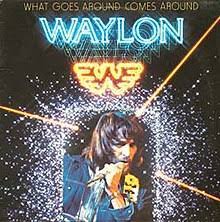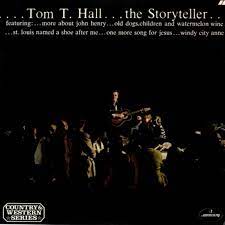Tutorial Pricing: $3.25ea OR any 10 for $10
(use code "Any10410" at checkout)
Paid Requests for $25ea
(comes with any 8 freebies -> so 9 for $25)
100's Of Free Demos & Chord Sheets
Buck Owens Country Songs
On The Acoustic
Welcome to my Buck Owens country songs page where you'll find info and lessons covering Buck Owens songs to learn on the acoustic guitar.
Help yourself to the free pdf chord sheets, view some full demos and sample demos. If you require full tutorial lessons for these songs below, there is a purchase link for a small fee.
Deeper discounts available from the top menu.
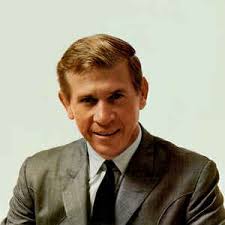
Buckaroo
Crying Time
Loves Gonna Live Here Again
Made In Japan
Open Up Your Heart
Rolling In My Sweet Babys Arms
Satans Gotta Get Along Without Me
The Streets Of Bakersfield
Tiger By The Tail
Truck Driving Man
Waitin In your Welfare Line
Buck Owens Country Songs
Chords, Lyrics, Demos, Tutorials
Act Naturally
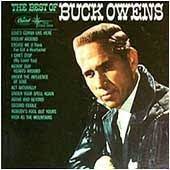
Act Naturally is a song written by Johnny Russell and Voni Morrison, and made famous by Buck Owens, who recorded it in 1963. The song became a hit for Owens, reaching number 1 on the Billboard Hot Country Singles chart and remaining there for four weeks.
The lyrics of the song describe a man who is trying to convince his former lover that he's doing just fine without her, and is able to put on a convincing act of happiness and contentment.
"Act Naturally" has since been covered by numerous artists, including The Beatles, who recorded their own version in 1965 with Ringo Starr on lead vocals. The Beatles' version became a hit in its own right, and helped to introduce Buck Owens' music to a wider audience.
The track can be found on the album The Best Of Buck Owens.
Chords & Lyrics
Jump To Top
Buckaroo
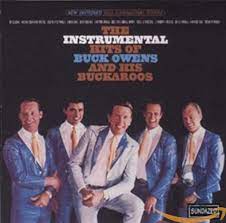
Buckaroo is an instrumental country song written by Bob Morris and made famous by Buck Owens and his band, The Buckaroos. The song was released in 1965 as a single and became a hit, reaching number 1 on the Billboard Hot Country Singles chart.
The song features Don Rich and Bucks Owens' distinctive harmony lead guitar playing. The upbeat tempo and catchy melody of the song make it a classic example of the Bakersfield Sound, a subgenre of country music that originated in California in the 1950s and 1960s.
"Buckaroo" is widely regarded as one of Owens' signature songs, and has since become a beloved classic of the genre.
It hails from the album "The Instrumental Hits Of Buck Owens".
- Drop D Tuning: No
- Capo: No
- Rhythm: root down up down up down up
- Picking: Yes
- Chords: D, G, A7, Em
Instrumental
Jump To Top
Crying Time
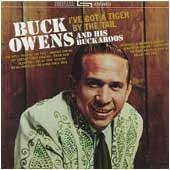
Crying Time is a song written by the American country musician Buck Owens. He recorded it in 1964 but never released the song as a single.
The lyrics of "Crying Time" describe a man who is struggling to come to terms with a relationship that has ended, and finds himself overcome with sadness and tears. The song's catchy melody and Owens' soulful vocals make it a country classic.
"Crying Time" has since been covered by numerous artists, including Ray Charles, who recorded his own version of the song in 1966. Charles' version became a hit that won him two Grammy Awards and helped to introduce Buck Owens' music to a wider audience.
Glen Campbell also covered this song. The track can be found on Buck's album I've Got A Tiger By The Tail.
- Drop D Tuning: No
- Capo: No
- Rhythm: root down root up down up and repeat
- Picking: Yes
- Chords: G, D, D7, G7,C, Am7
Chords & Lyrics
Jump To Top Of Buck Owens Country Songs
Loves Gonna Live Here
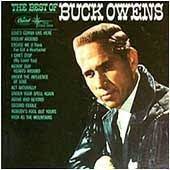
Loves Gonna Live Here is a country number written by Buck Owens. Owens recorded the song in 1963 and released it as a single, which became a hit and went on to top the Billboard Hot Country Singles chart for 16 weeks, becoming one of Owens' biggest hits.
The lyrics of the song describe the singer's happiness and optimism about a new love that he's found, and his belief that their love will conquer all obstacles. The song's upbeat melody and catchy chorus make it a classic example of the Bakersfield Sound in the 1950s and 1960s.
"Love's Gonna Live Here" has since been covered by numerous artists over the years, including Waylon Jennings, Merle Haggard, and Glen Campbell. The song has also been used in films and TV shows as a quintessential example of classic country music.
The track can be found on the album The Best Of Buck Owens.
Chords & Lyrics
Jump To Top
Made In Japan
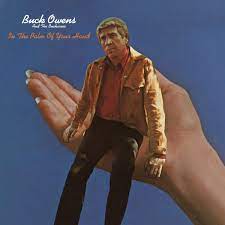
Made In Japan is a song written and recorded by the American country musician Buck Owens. It was released as a single in 1972 and became a hit for Owens, reaching number 1 on the Billboard Hot Country Singles chart and in Canada.
The melody and upbeat tempo of the song contrast with the melancholy theme of the lyrics, making it a classic example of Buck Owens' unique blend of traditional country music. The guitar playing in this song has a taste of Japanese sound within the rhythm.
The track can be found on the album In The Palm Of Your Hand.
Chords & Lyrics
Jump To Top
Open Up Your Heart
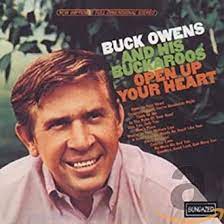
Open Up Your Heart (And Let the Sunshine In)" is a classic country-gospel song that was originally written by Stuart Hamblen in 1954. Buck Owens and his band, The Buckaroos, recorded their version of the song in 1966, and released it as a single the same year.
The song features Owens' signature Bakersfield Sound, with a blend of traditional country music and some bluegrass influences. It also features backing vocals by The Buckaroos, which give the song a joyful, upbeat feel.
The lyrics of "Open Up Your Heart" encourage listeners to let the sunshine in and find joy and happiness in their lives. The song's gospel-inspired message and catchy melody have made it a beloved classic of the country-gospel genre, and it remains a popular song for church services and other religious gatherings.
The song has been covered by numerous artists over the years, including The Wilburn Brothers, The Cowboy Church Sunday School, and The Pebbles. The song's enduring popularity and uplifting message make it a timeless classic of both country and gospel music. The track can be found on Buck's album of the same name.
Chords & Lyrics Unavailable At This Time
Jump To Top Of Buck Owens Country Songs
Rollin' In My Sweet Babys Arms
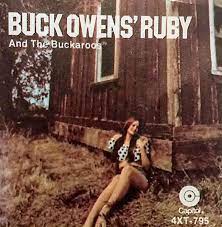
'Rollin In My Sweet Babys Arms is a classic bluegrass song that has been recorded by many artists over the years, including Buck Owens. Owens recorded the song for his 1971 album "Ruby," which featured a mix of original songs and covers of classic country and bluegrass tunes.
Owens' version of "Rollin' in My Sweet Baby's Arms" features his signature Bakersfield Sound. The song's catchy melody and upbeat tempo make it a classic example of bluegrass music, with a mix of traditional country rhythms.
The lyrics of the song describe the singer's happiness and contentment in the arms of his lover, with references to moonshine and other classic bluegrass themes. The song's catchy chorus, which repeats the phrase "Rollin' in my sweet baby's arms," has become a well-known and beloved refrain in bluegrass music.
Chords & Lyrics
Jump To Top
Satan's Gotta Get Along Without Me
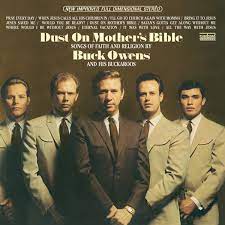
Satan's Gotta Get Along Without Me is a gospel-infused country song that was recorded by Buck Owens for his 1966 album "Dust On My Mothers Bible." The song was co-written by Owens and one of his guitar players Red Simpson.
The lyrics of the song describe the singer's commitment to living a righteous life and turning away from sin and temptation. The song's gospel-inspired message make it a unique addition to Owens' discography.
Musically, "Satan's Gotta Get Along Without Me" features Owens' signature rhythm and twangy sounding guitar. The song also features backing vocals by Owens and The Buckaroos, which give the song a lively, upbeat feel.
The song however was never released as a single.
Chords & Lyrics Soon
Jump To Top
The Streets Of Bakersfield
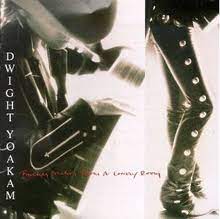
The Streets Of Bakersfield was Dwight Yoakam's first #1 in the US but his first #1 was Honky Tonk Man in Canada two years earlier.
From his "Buenas Noches From A Lonely Room" album of 1988, The Streets Of Bakersfield was a duet with his mentor Buck Owens. Homer Joy wrote the song years earlier and it was recorded by Buck back in 1972, but he had little commercial success at that time.
This duet version was the first time Buck Owens had seen a #1 in 16 years.
- Drop D Tuning = No
- Capo = 2nd fret
- Rhythm = root down root up down up and repeat
- Picking = Yes
- Chords = G, C, D
Jump To Top Of Buck Owens Country Songs
Tiger By The Tail
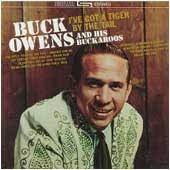
Tiger By The Tail was recorded by Buck Owens and his band, The Buckaroos, in 1964. The song was written by Owens and longtime collaborator Don Rich, and it became one of Owens' biggest hits, reaching No. 1 on the country charts and earning a Grammy nomination.
Musically, "Tiger By The Tail" features Owens' signature sound with a memorable chorus, which repeats the phrase "I've got a tiger by the tail, it's plain to see," has become a beloved refrain in country music.
The lyrics of the song describe the singer's wild and unpredictable lover, whom he compares to a tiger that he can't control. The song's playful and lighthearted tone, combined with its catchy melody and danceable rhythm, make it a classic example of the upbeat, feel-good country music that Owens was known for.
The track can be found on the album of the same name.
Jump To Top
Truck Driving Man
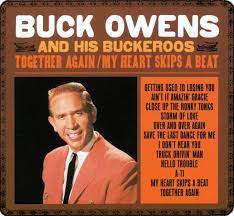
Truck Driving Man was recorded by Buck Owens in 1965. The song was written by Terry Fell, but it was never released as a single by Buck.
Musically, "Truck Drivin' Man" features Owens' signature Bakersfield Sound with lyrics describng the life of a truck driver, with references to the open road, long hours, and the freedom that comes with being behind the wheel.
The song's appeal lies in its ability to capture the spirit of the American truck driver, and its infectious rhythm and catchy melody have made it a classic example of the upbeat, feel-good country music that was a classic Buck Owens sound.
The track can be found on his album Together Again.
Chords & Lyrics
Jump To Top
Waitin' In Your Welfare Line
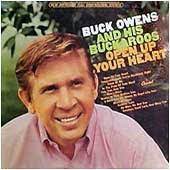
Waitin On Your Welfare Line was recorded by Buck Owens in 1966. The song was written by Owens and Don Rich, and it became a big hit, reaching No. 1 on the country charts.
The song's lyrics describe a man who is down on his luck and waiting in line to receive welfare assistance. Despite his hardships, the man remains hopeful and optimistic, and he looks forward to a better future.
The song hails from Buck's album "Open Up Your Heart".
Chords & Lyrics
Jump To Top Of Buck Owens Country Songs
Thanks for stopping by this Buck Owens country songs page and I hope the info here was helpful.
If you liked this Buck Owens country songs page you might also like ... (click images)
Buck Owens Documentary
Very Easy Country Guitar Songs
